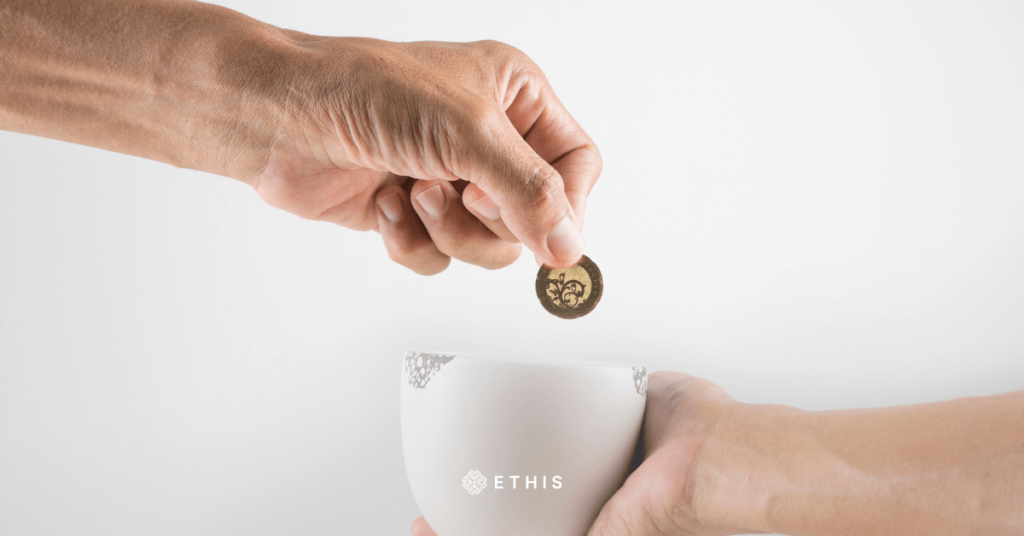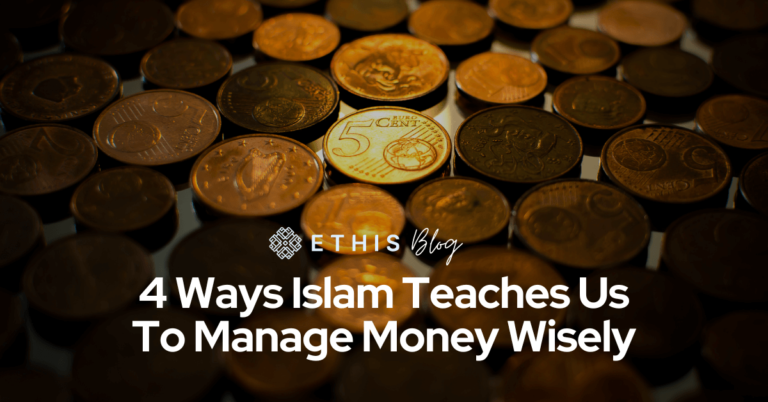
Money comes without instructions. That’s why managing it wisely requires reflection and discipline. In today’s world where global inflation, recessions, and financial uncertainty continue due to wars, climate challenges, and the aftershocks of the pandemic living within our means is more important than ever.
But financial mindfulness doesn’t mean giving up the joys of life or the passions that inspire us. Instead, Islam teaches balance: spend responsibly, avoid excess, and remember that wealth is a trust (amanah) from Allah ﷻ.
Many people today are forced to cut back on wants to focus on needs. With rising bankruptcies, asset repossessions, and job losses in several economies, overspending can quickly spiral into financial hardship.
Islam’s guidance remains timeless: live within your means, avoid excessive borrowing, and build systems of honesty, fairness, and transparency not greed.
As Muslims, we know that everything including our wealth belongs to Allah ﷻ. The question then is: how should we use it? Here are four timeless principles Islam teaches us about money management—refreshed for 2025.
1. Wealth Should Empower You and Those Around You


Wealth brings comfort and joy, but if misused, it can distract us from what truly matters. Islam reminds us that possessions stay behind when we leave this world. A believer should not save and hoard great sums of money and wealth but best to share and distribute them to those who are in need of it.
Instead of hoarding wealth, believers are encouraged to share it, distribute it, and uplift others. A Muslim should see wealth not as a trophy, but as a tool.
As narrated by Abu Ayyub (رضي الله عنه):
A man asked the Prophet ﷺ about a deed that would admit him to Paradise. The Prophet ﷺ replied:
“Worship Allah and do not associate anything with Him, establish prayer, pay zakat, and maintain good relations with your kin.” (Bukhari & Muslim)
This hadith reminds us that wealth becomes meaningful when it empowers us to fulfill obligations, prayer, zakat, family care and support our communities.
Related: What are the Islamic Viewpoints of Growing Wealth and Investing?
2. Allah is the Ultimate Provider (ar-Razzāq)
Before Islam, pagans would kill their children out of fear of poverty. Islam abolished this cruel practice by reminding believers that provision comes only from Allah ﷻ:
“..and be good to parents, and do not kill your children because of poverty – We will give provision to you, and to them,” [Quran 6:151].
This guidance is still relevant now. Rising living costs make many anxious about the future. But believers place their trust in Allah—the One who provides for all. Fearing poverty to the point of despair reflects weak tawakkul (trust). True faith means working hard, while knowing Allah sustains us.
3. Earn a living by doing halal and lawful ways.


Muslims must earn their wealth in a lawful, or halal, way and they are blessed by Allah. Wealth shall not be earned by selling or buying things that God forbids us, such as alcohol or pork, or by engaging in illegal activities such as gambling, non-shariah compliant trading and more.
Wealth gained through halal work is blessed, while haram earnings carry no barakah. Muslims are prohibited from earning through alcohol, pork, gambling, conventional interest-based finance, or unethical industries.



The Qur’an commands:
““O you who have believed, do not consume one another’s wealth unjustly but only [in lawful] business by mutual consent.” [Quran 4:29]
For Muslims, halal earning also means being mindful of modern financial tools. If you hold investments in non-Shariah-compliant stocks, bonds, or funds tied to prohibited industries, the best step is to exit those assets and purify earnings by giving questionable profits away as sadaqah. Current trend: Global halal finance is booming, exceeding $4.5 trillion in assets. Muslims now have access to Shariah-compliant fintech platforms like:
> Ethis – impact-driven crowdfunding for ethical projects.
> Wahed & ShariaPortfolio – halal robo-advisors that use AI to build compliant portfolios.
> Sukuk (Islamic bonds) – stable but low-risk investments for preserving capital.
> HASAN.VC – a halal venture capital fund connecting investors with innovative startups while ensuring strict Shariah compliance.
These innovations give Muslims more halal investment opportunities than ever before, ensuring their wealth grows ethically while supporting positive impact.
Alternative Investment Platforms and Funds
For those seeking a structured, professional investment approach, HASAN.VC stands out as a leading halal venture capital fund. It specializes in identifying startups with high growth potential while ensuring strict adherence to Shariah principles.
By investing through HASAN.VC, individuals gain access to a diversified and professionally managed portfolio, spreading risk across multiple ventures while maximizing opportunities for ethical returns.
Most importantly, HASAN.VC empowers investors to grow their wealth with peace of mind, knowing their capital supports ventures that create real societal impact and remain fully compliant with Islamic values.
Related: 11 Reasons Why you Should Give Sadaqah Regularly
4. Give back, and your wealth will increase


The faith of Muslims is built on the five pillars of Islam and one of those pillars is giving wealth to charity, or zakat. In fact, in the Quran charity is often mentioned as going along with prayer.
“[True] righteousness is [in] one who believes in God, the Last Day, the Angels, the Book, the Prophets and gives of their wealth, in spite of love for it, to relatives, orphans, the needy, the traveler, those who ask [for help], and for freeing slaves; [and who] establishes Prayer and practices regular charity.” [Quran 2:177]
The Prophet (ﷺ) provided the ultimate example of a Muslim who spent his wealth in charity. He provided for others before taking for himself. He was a simple man and was never greedy. He himself was an orphan and Muslims are taught in the Quran that their wealth should be spent towards orphans and those who cannot provide for themselves. Even without abundant wealth, you can still give in the cause of God because even the smallest amount is an act of charity.
Muslims worldwide also use digital sadaqah apps and crowdfunding platforms to support causes instantly across borders, making charity more accessible than ever.
Islam assures us: wealth given in Allah’s way does not decrease. Instead, Allah replaces it with something better, often in ways we cannot imagine.
Related: The Impact of Sadaqah On Society
Final Reflection: Responsible Wealth, Lasting Happiness
These four principles of sharing wealth, trusting Allah as the Provider, earning halal, and giving back remain the foundation of Islamic money management.
Muslims face modern challenges like inflation, debt, and consumerism. But the guidance of Islam offers timeless wisdom: be grateful, be responsible, and be generous.
Remember: true happiness isn’t found in possessions. It lies in accountability, balance, and living a life aligned with faith and values.





Top Posts
Islamic P2P Crowdfunding Explained
Halal Money Matters: How Muslims Can Balance Deen and Dunya with Smart Islamic Finance
Halal Investments for Singapore Muslims? It’s time for a shake-up in the Islamic Investments scene.
Smart investment for making Halal money
3 Reasons Why Property Crowdfunding is the Smart Investment for You